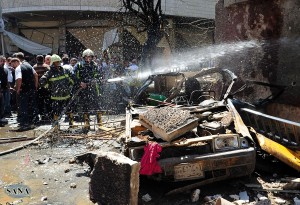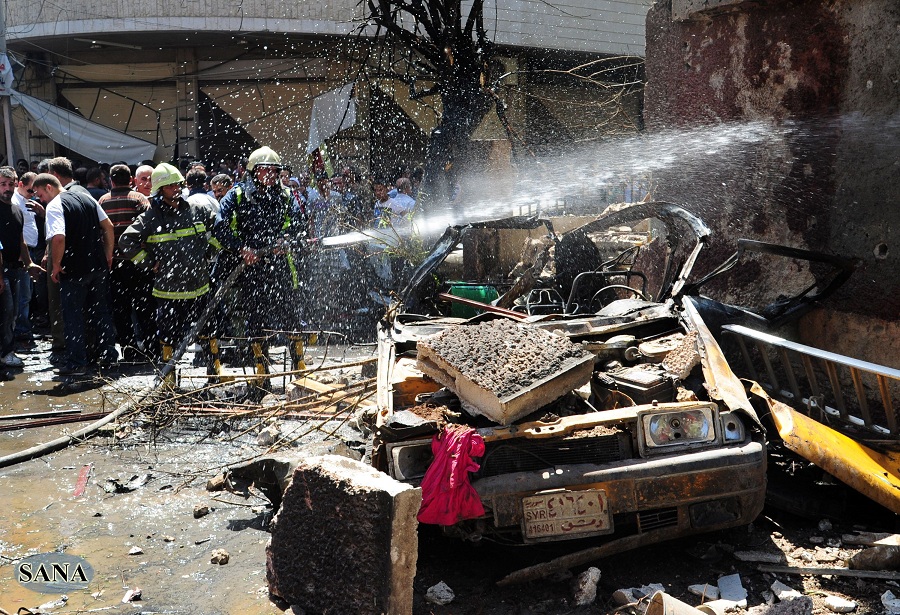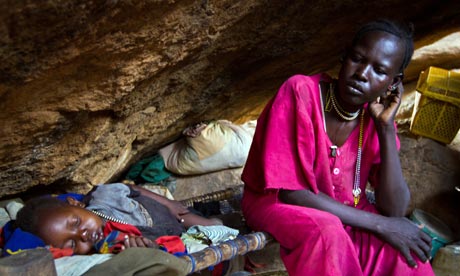
AFP PHOTO / HO / SANA
As violence continues across the country, the UN’s latest Special Envoy to Syria,LakhdarBrahimi, expressed his doubts on the achievement of a peaceful resolution to the Syrian crisis.During an interview with the BBC,Brahimi admitted the enormity of the task at hand”I know how difficult it is – how nearly impossible. I can’t say impossible – nearly impossible,” Brahimi said.
Brahimi is a veteran Algerian diplomat and politician, having been an active player in Algerian domestic and international politics since his twenties. He has held several high-profile positions within his career and is attributed with successfully negotiating the end of the Lebanese civil war, through the brokering of the Taif Agreement. Yet despite his reputation for being a world-class diplomat, Brahimi admitted to being scared of the weight of responsibility thrust upon him by his latest position.
“People are already saying: ‘People are dying and what are you doing?’ And we are not doing much. That in itself is a terrible weight,” he said to BBC.Brahimi described his position as staring at a brick wall searching for cracks that may provide a way through the seemingly insurmountable barrier to peace. “I’m coming into this job with my eyes open, and [with] no illusions,” he said.
Brahimi’s predecessor Kofi Annan had blamed members of the UN Security Council’s “finger pointing and name-calling” for obstructing the path to resolution. Nevertheless, the situation on the ground in Syria shows just how impossible finding a peaceful solution actually is. Since the beginning of the uprising, estimates from the UN have put the number of people killed due to the conflict at over 20,000. The Syrian President Basher Al-Assad has repeatedly proven, through his actions and his words, that he will not step down. The loose collective of fighters from across the country operating under the banner of the Free Syrian Army have been waging a civil war against a man for whom only death and justice have been promised. Annan’s six-point-plan failed to garner cooperation from the parties involved, despite their initial agreements to its terms.
Compounding the issue further is the fate of the Alawite community in a post-Al-Assad Syria. Were Al-Assad to fall without the presence of an external force to keep the peace, the Alawite community would be left at the mercy of the Free Syrian Army; a collective of opposition fighters with no binding ideology other than the fall of Al-Assad. This concern is echoed by the defected Syrian General Manaf Tlass who, according to the Washington Post, claimed his work now was to convince the Alawite ruling minority that they “do not have to commit suicide along with the regime.” Tlass claims Alawites are also discontented with the bloody conflict, but need reassurances of their safety. “Alawites need to know that there’s a strong side that will guarantee their safety if they defect.”
Brahimi’s comments as the UN’s Special Envoy to Syria serve to legitimize international cooperation separate from the UN, by admitting that the obstacles for peace are nearly insurmountable for the UN as a collective whole.
Meanwhile, violence continues across Syria, Reuters reported a car bomb on Monday was detonated in the neighborhood of Jaramanah in capital city of Damascus. Opposition activists quoted by Reuters believed the string of such attacks in Jaramanah, home to Christians, Sunni Muslims and Druze, are an attempt to create sectarian strife by the Al-Assad regime.



